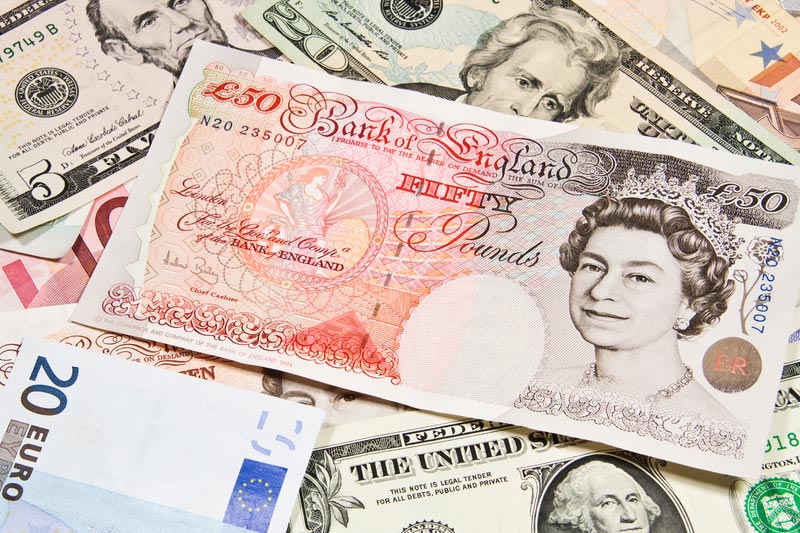Investing.com - The pound slipped lower against the dollar on Thursday as geopolitical tensions between Russia and Ukraine damped risk appetite, supporting demand for the greenback.
GBP/USD hit 1.6617, the lowest since Monday and was last down 0.23% to 1.6631.
Cable was likely to find support at 1.6582, Monday’s low and resistance at 1.6701, Wednesday’s high.
Market sentiment was hit by fresh political and military tensions between Russia and Ukraine after Ukrainian President Viktor Yanukovych was ousted last week.
On Wednesday Russian President Vladimir Putin ordered 150,000 Russian troops to begin military exercises in central and western Russia, near the border with Ukraine.
Political uncertainty in Ukraine sparked renewed concerns over the outlook for emerging markets, and pressured the Russian rouble to five year lows against the dollar. Meanwhile, Ukraine’s hryvnia fell to record lows after the central bank abandoned its policy of supporting the currency.
Investors were looking ahead to testimony by Federal Reserve Chair Janet Yellen later in the session. A recent series of disappointing U.S. economic reports had raised doubts over whether the Fed would stick to the current pace of reductions to its stimulus program. Ms. Yellen was expected to reiterate that the U.S. central bank would continue to roll back its asset purchase program, as long as the economy improves as expected.
The dollar remained supported after the Commerce Department reported on Wednesday that new home sales rose to their highest level since July 2008 in January, easing concerns over a slowdown in the housing recovery.
Elsewhere, the euro was little changed against sterling, with EUR/GBP dipping 0.02% to 0.8208.
The common currency remained under pressure after data on Thursday confirmed that Spain’s economy grew 0.2% in the fourth quarter, below the initial estimate for 0.3% growth.
A separate report showed that lending to households and firms in the euro zone fell in for a second month in January.
Investors were looking ahead to German inflation data due out later in the session, as well as euro area inflation figures on Friday amid concerns over the threat of deflation in the region.
The European Central Bank is to hold its monthly policy meeting next week, amid speculation that it will tighten monetary policy again in order to safeguard the fragile recovery in the euro zone.
